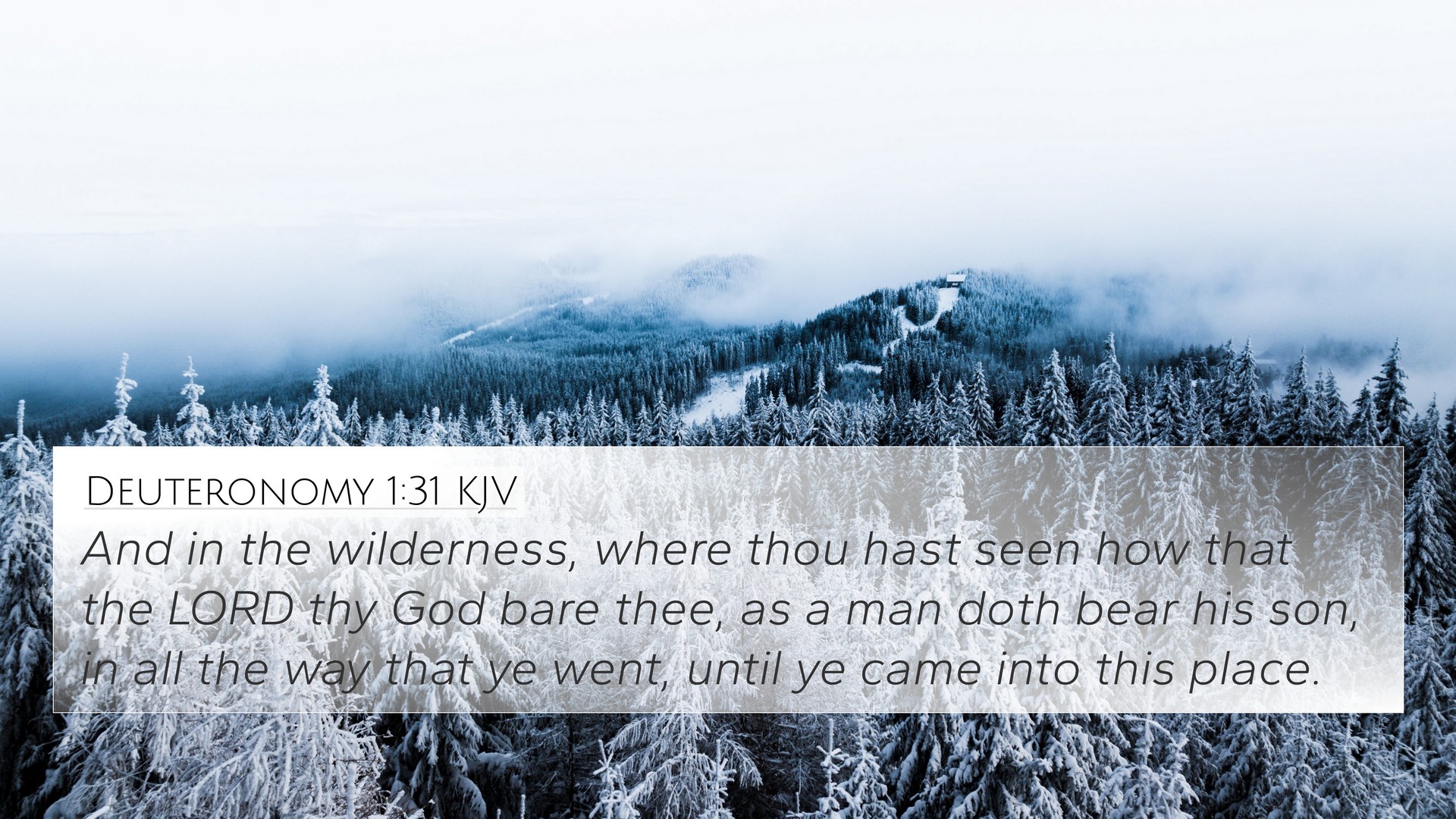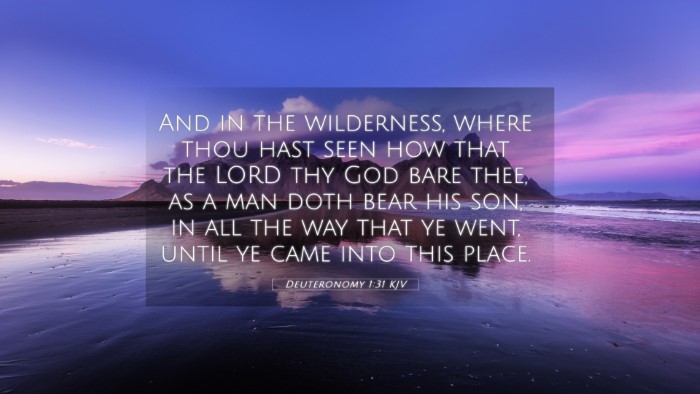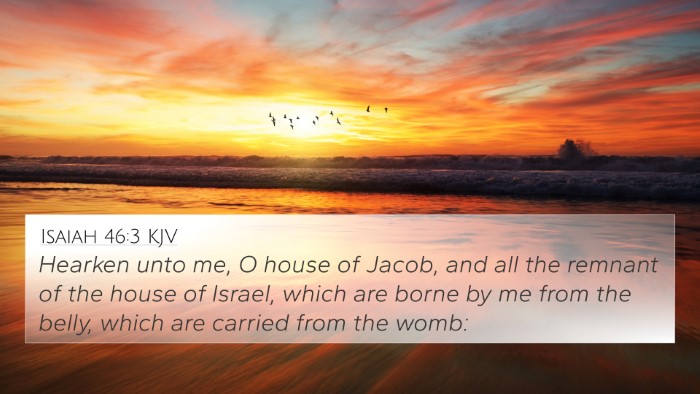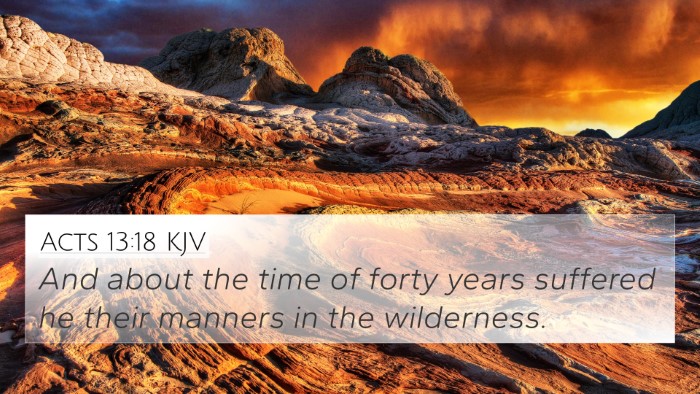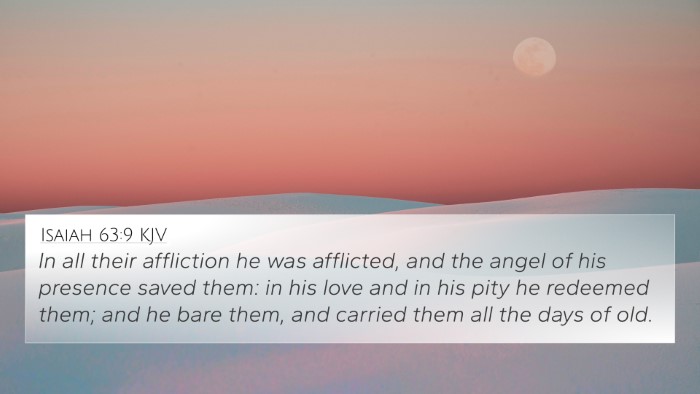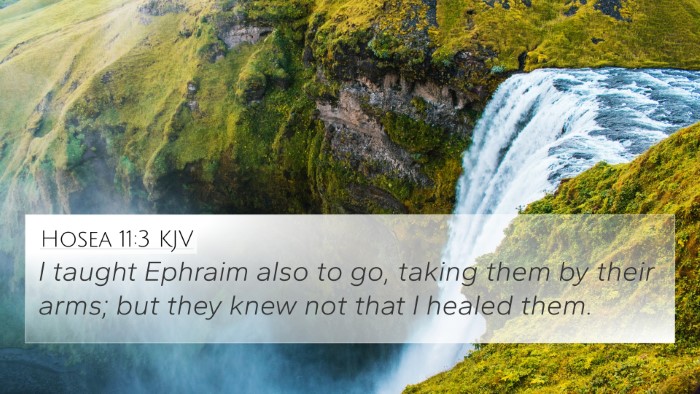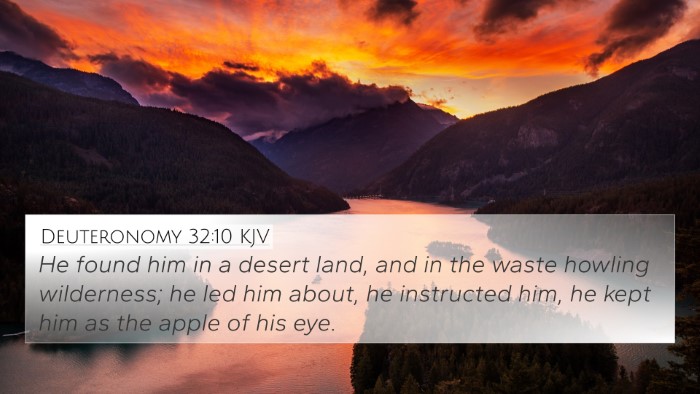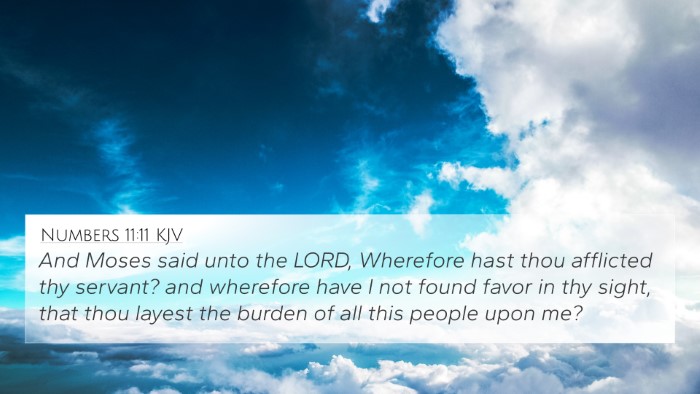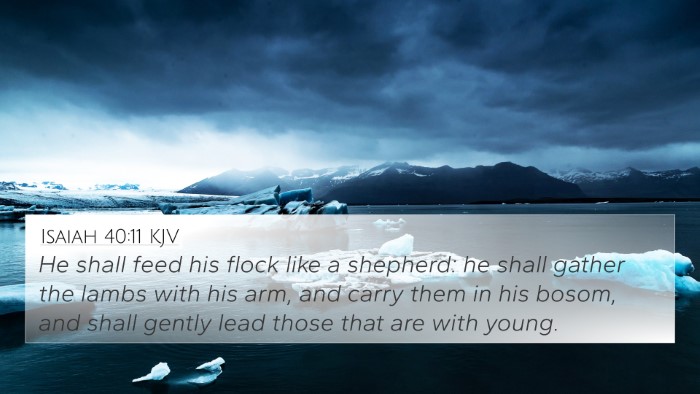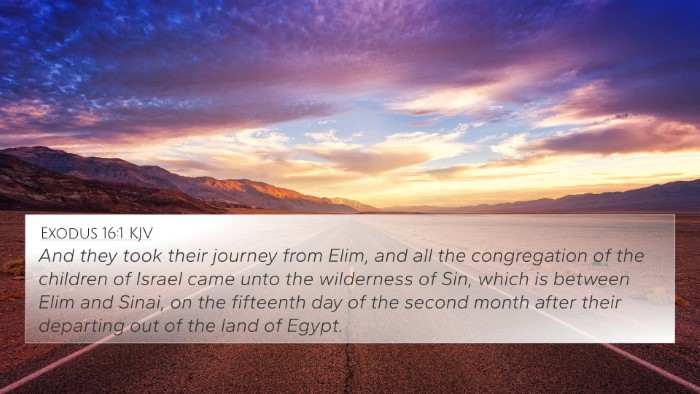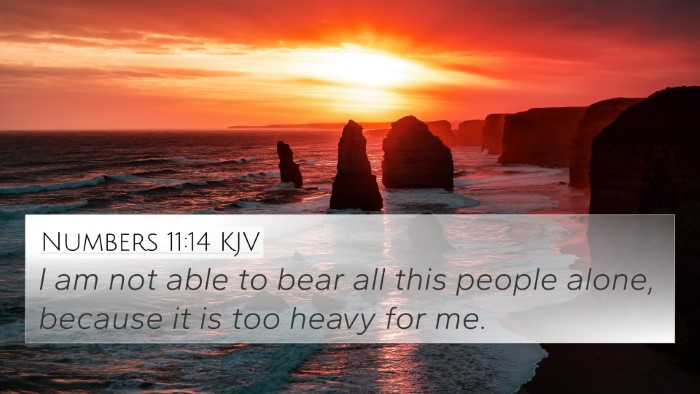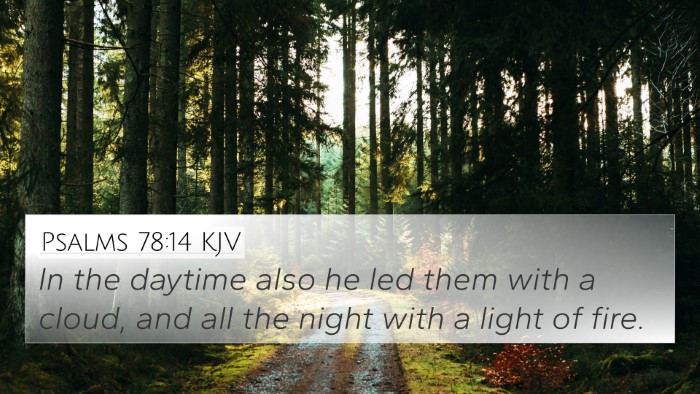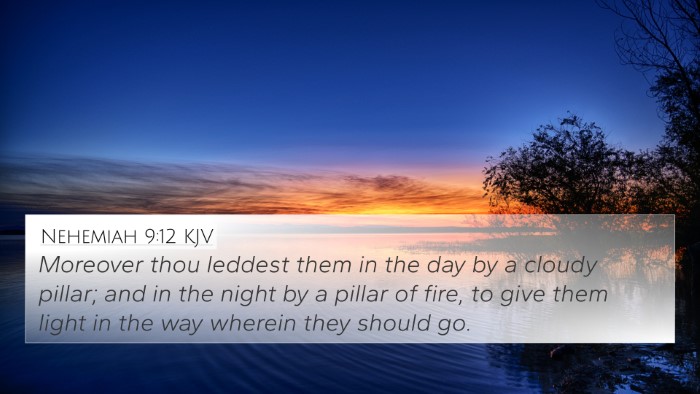Understanding Deuteronomy 1:31
Deuteronomy 1:31 states:
"And in the wilderness where thou hast seen how that the Lord thy God bare thee, as a man doth bear his son, in all the way that ye went, until ye came unto this place." (KJV)
Summary of Meaning
This verse encapsulates the theme of God's faithfulness and care for the Israelites during their journey in the wilderness. It illustrates the intimate relationship between God and His people, likening the divine support to that of a father carrying his son.
Insights from Public Domain Commentaries
Matthew Henry's Commentary
Matthew Henry emphasizes the notion of God as a caretaker. He draws attention to the imagery of God bearing the Israelites "as a man doth bear his son," which signifies not only physical support but also emotional and spiritual guidance. Henry notes that God's leadership through hardships in the wilderness demonstrated His unwavering commitment to the Israelites, a theme that resonates throughout Scripture.
Albert Barnes' Notes
Albert Barnes provides insights on the significance of God’s guidance and how it was evident in their journey. He highlights that God’s bearing of His people included protection from their enemies and sustenance in trying times. Barnes connects this verse with various episodes in the Israelites' history, illustrating a consistent pattern of God's provision and mercy, integral for understanding inter-Biblical dialogues.
Adam Clarke's Commentary
Adam Clarke points out that the verse serves as a reminder of past faithfulness, encouraging the Israelites to recall how God guided them. He notes the importance of remembrance in faith, paralleling it with the New Testament’s encouragement to remember Christ’s works. Clarke's analysis suggests that this verse not only serves as historical reflection but also has implications for faith today, urging believers to trust in God’s continued guidance.
Cross-References and Thematic Connections
This verse finds connections in several Biblical texts, which can deepen understanding through comparative Bible verse analysis:
- Exodus 19:4: "Ye have seen what I did unto the Egyptians, and how I bare you on eagles' wings, and brought you unto myself."
- Psalms 36:6: "Thy righteousness is like the great mountains; thy judgments are a great deep: O Lord, thou preservest man and beast."
- Psalms 103:13: "Like as a father pitieth his children, so the Lord pitieth them that fear him."
- Isaiah 46:4: "And even to your old age I am he; and even to hoar hairs will I carry you: I have made, and I will bear; even I will carry, and will deliver you."
- Matthew 11:28-30: "Come unto me, all ye that labour and are heavy laden, and I will give you rest... For my yoke is easy, and my burden is light."
- John 10:14: "I am the good shepherd, and know my sheep, and am known of mine."
- Revelation 7:17: "For the Lamb which is in the midst of the throne shall feed them, and shall lead them unto living fountains of waters: and God shall wipe away all tears from their eyes."
Application for Modern Believers
The promise of God's care extends beyond the wilderness experience of the Israelites. It reassures believers today that God is intimately involved in their lives, guiding and carrying them through challenges. Recognizing God's consistent support encourages trust and reliance on Him.
Using Bible Cross-References
For those looking to explore tools for Bible cross-referencing, this verse serves as an excellent starting point for deeper study. By examining cross-references, readers can uncover the interconnectedness of Scripture and how various themes resonate across both testaments.
Exploring Inter-Biblical Dialogues
Understanding the connections between this verse and others enhances one's reading of the Bible. By identifying how specific themes in Deuteronomy 1:31 relate to fathers, caregivers, and divine guidance throughout scriptures, believers can effectively utilize a Bible concordance or cross-reference guide for richer spiritual insights.
Conclusion
In conclusion, Deuteronomy 1:31 not only emphasizes God's faithfulness but also invites readers to explore the vast network of themes and teachings woven throughout the Bible. By engaging with these connections and reflecting on the nature of God's care, believers can deepen their faith and understanding of the divine narrative.
